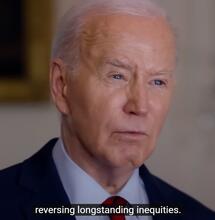Fewer Federal Charges for Cannabis in 2022

Charges for federal marijuana offenses markedly fell over the last year, 2022. The U.S. federal government filed charges for only 806 individuals, mainly on the basis of cannabis trafficking. Charges comprised only 4% of all federal drug cases.
Less than 1,000 offenses for weed were registered in the latest U.S. Sentencing Commission report. Such a small number of cannabis-related charges nods to changing preferences among United States law enforcement concerning cannabis.
According to data from NORML, the National Organization for the Reform of Marijuana Laws, the 806 offenders charged for cannabis last year represent a significant decline from a decade ago, when nearly 7,000 people were imprisoned for cannabis-related violations of law. The majority of law offenders in 2022 were charged on the grounds of drug trafficking.
Last year, in October, President Joe Biden announced a shift in federal policy toward cannabis convictions, starting with a mass pardon for individuals federally convicted for simple possession of marijuana.
"No one should be in jail just for using or possessing marijuana," the President said in his address. "Sending people to prison for possessing marijuana has upended too many lives and incarcerated people for conduct that many states no longer prohibit."
The president also acknowledged that "criminal records for marijuana possession have also imposed needless barriers to employment, housing, and education opportunities. And while white and Black and brown people use marijuana at similar rates, Black and brown people have been arrested, prosecuted, and convicted at disproportionate rates."
The president's mass pardon has applied to around 7,000 offenders. Subsequently, Biden also called for state governors to follow steps and free the legal path for state-level offenders on the grounds of simple possession. Oregon Gov. Kate Brown was among the first to answer the call, moving on to pardon more than 45,000 people with low-level cannabis convictions.
At the same time, Biden requested the Secretary of Health and Human Services and the Attorney General to launch an administrative process and review the federal status of marijuana. Ultimately, the review should remove marijuana from the Schedule I Controlled Substances list, which is the same as heroin and LSD and higher than the classification of fentanyl and methamphetamine, the two drugs largely responsible for the current overdose epidemic.
Sale and distribution of cannabis continue to represent serious offenses under federal and state laws. Only those with low-level offenses remain eligible for a pardon. Officials have already declared that there are no longer people in federal prisons serving time solely on the grounds of cannabis possession.









